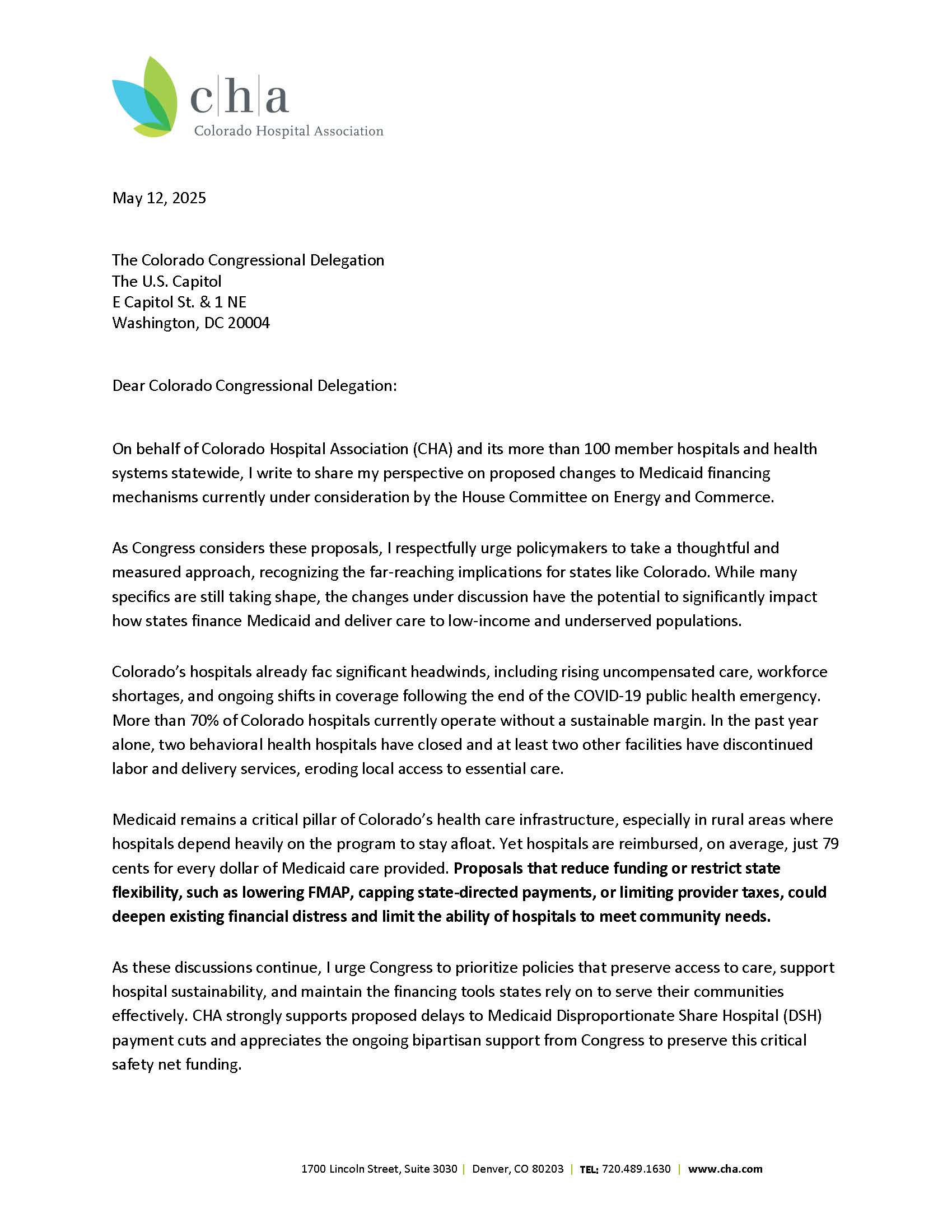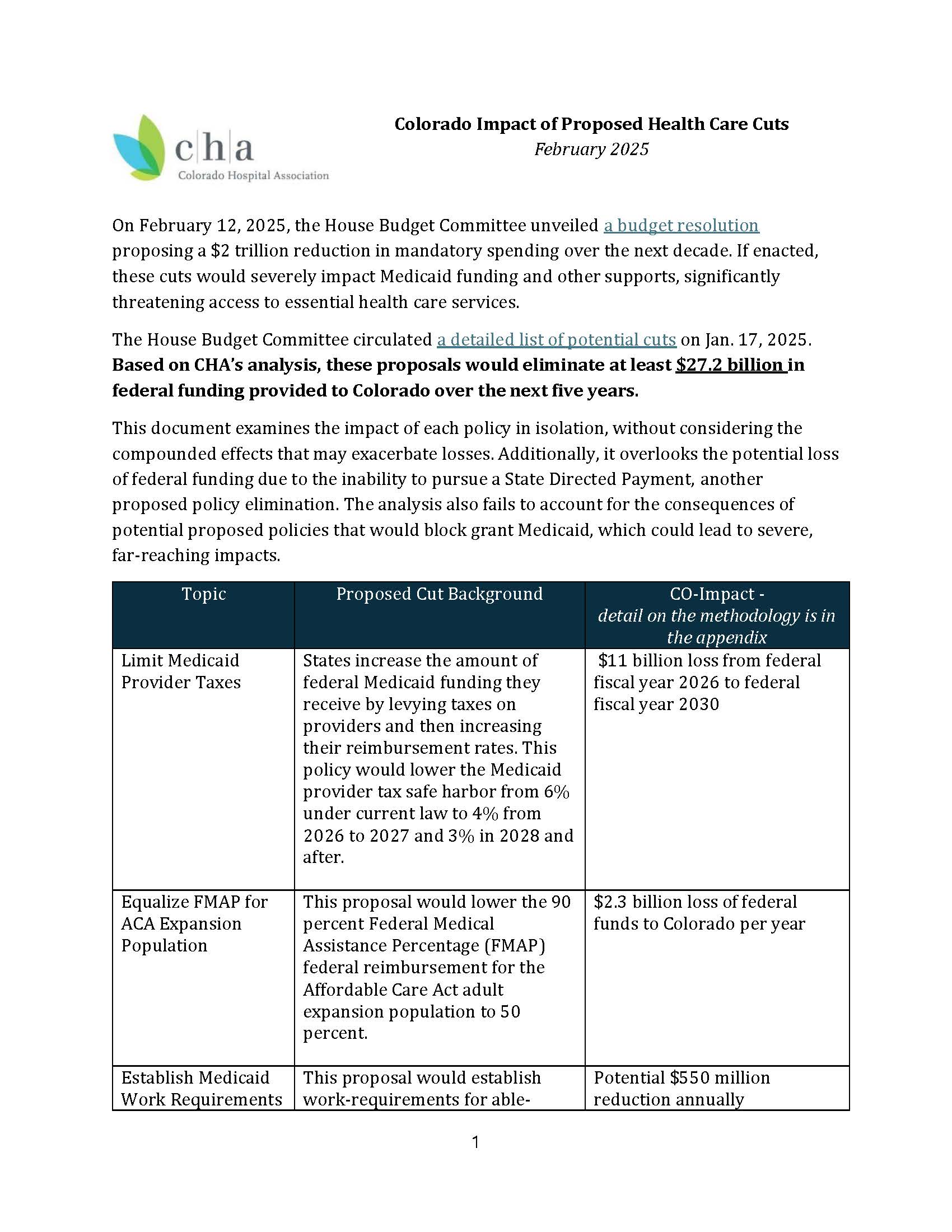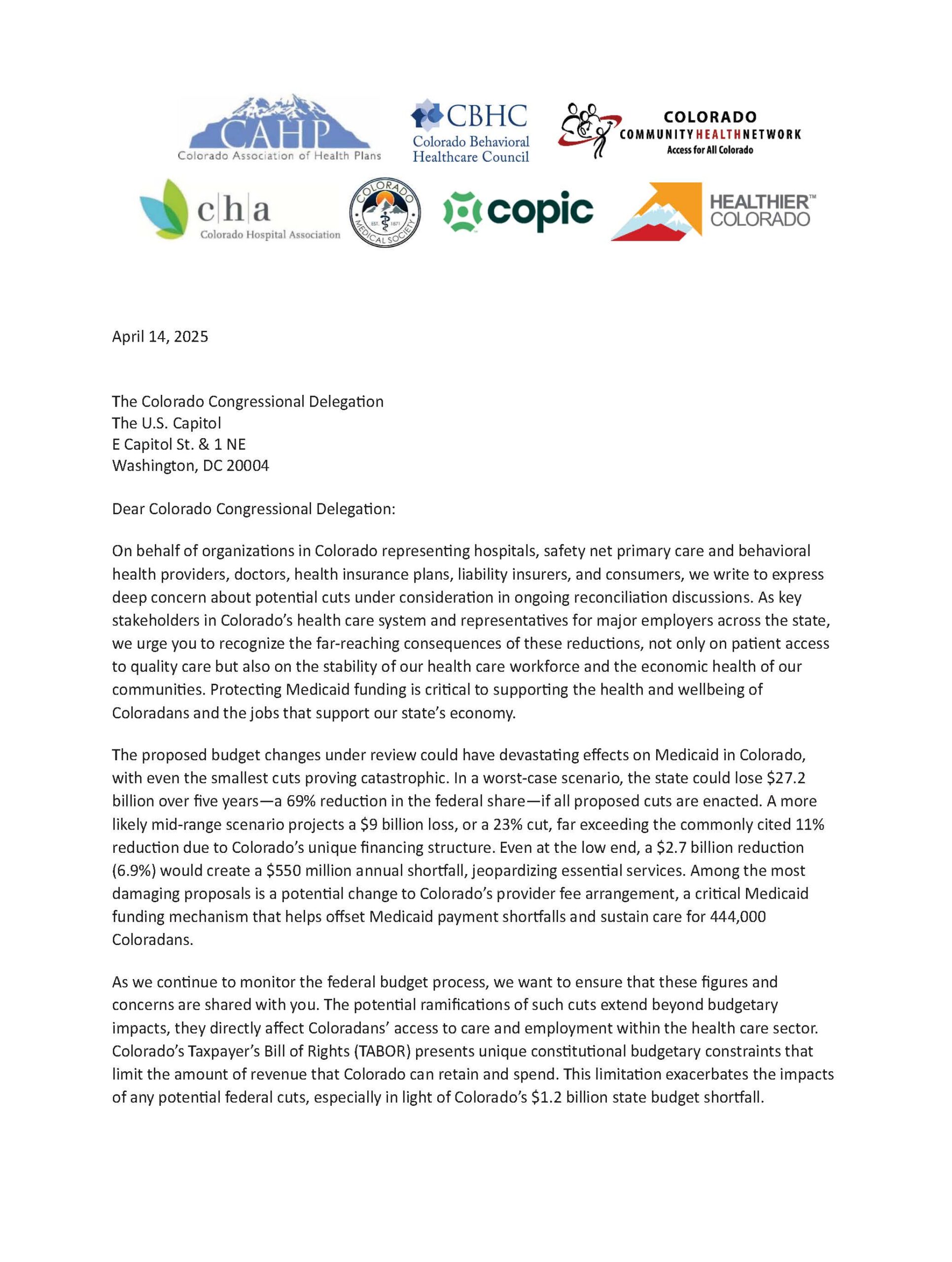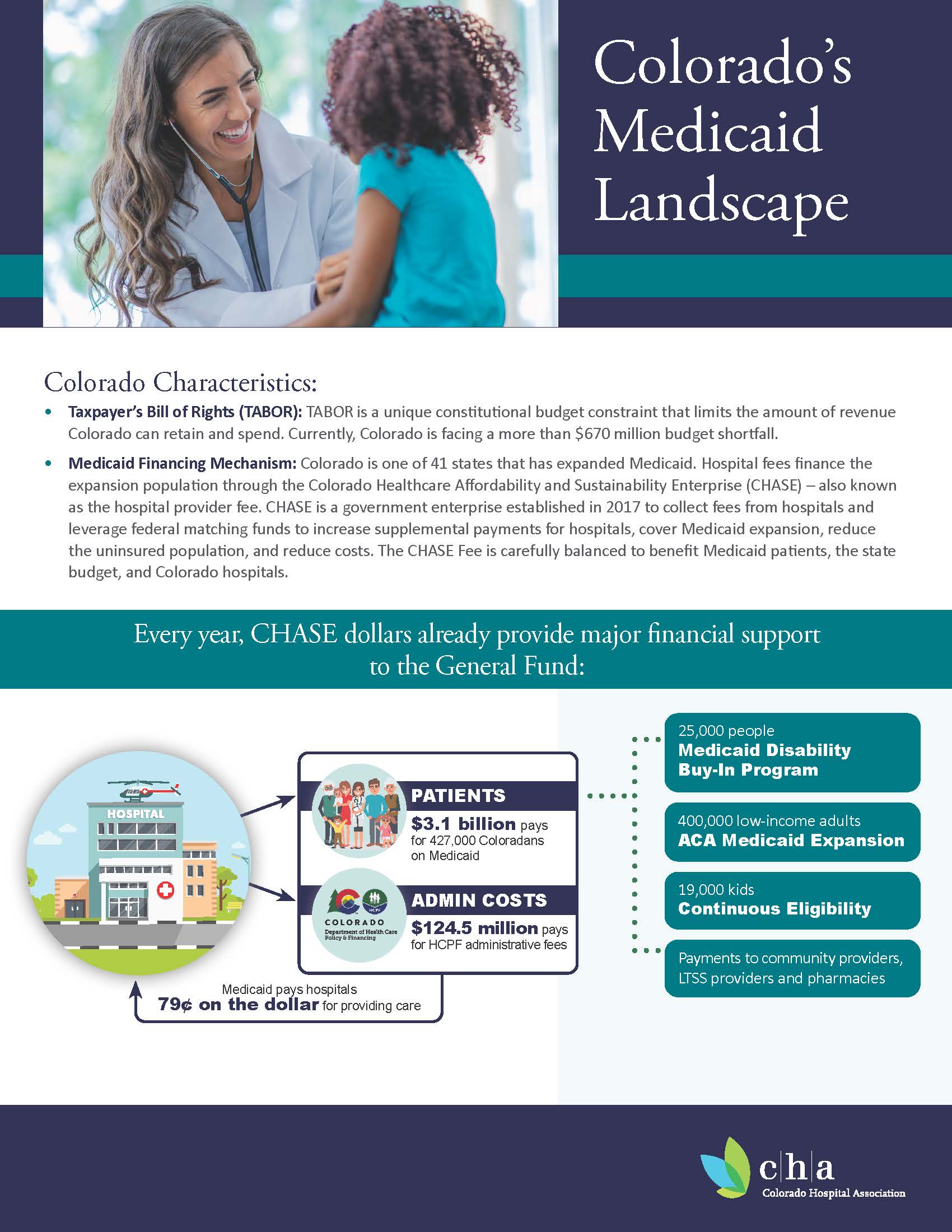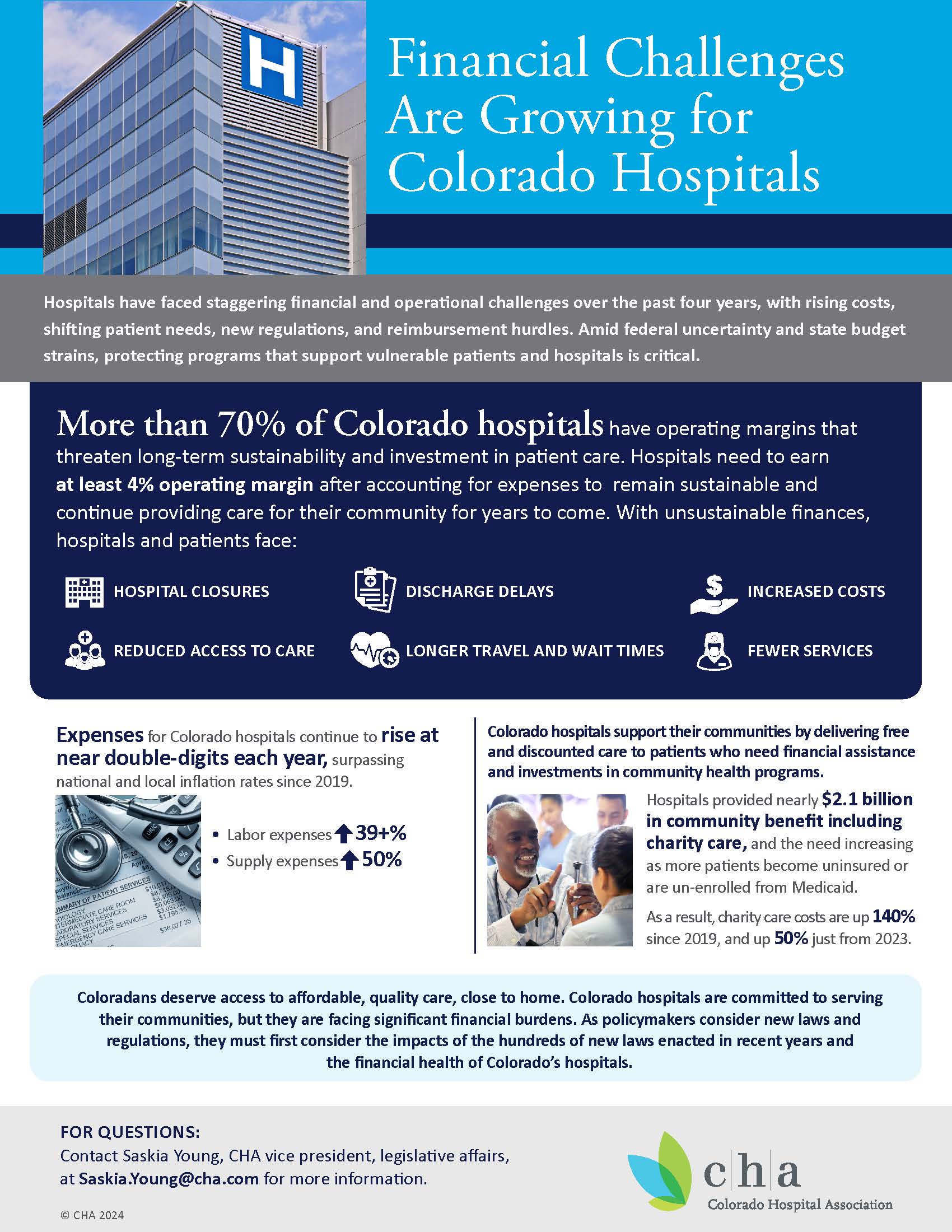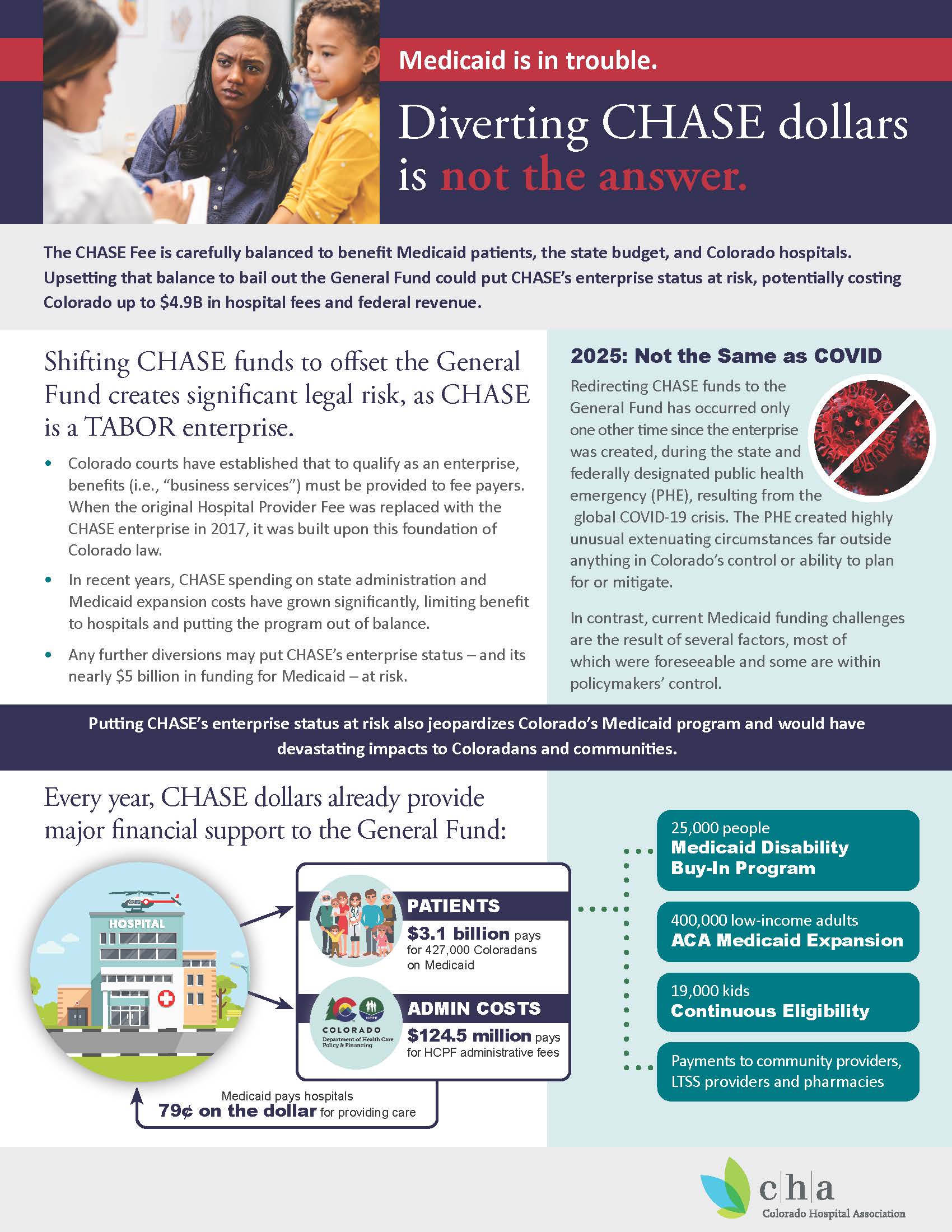Federal Cuts to Health Care
Congress is considering budget packages that could include cuts to Medicaid and/or other hospital financing mechanisms. The House of Representatives passed its version of the bill in May. That version includes changes to Medicaid like adding work requirements and allowing Affordable Care Act tax credits expire. According to the Kaiser Family Foundation, the proposed legislation could increase Colorado’s uninsured population by approximately 150,000 people.
On July 1, the Senate passed its version of the One Big Beautiful Bill Act. This version of the bill calls for harsher cuts to Medicaid than the House package, including lowering the allowable provider tax from 6 percent to 3.5 percent over five years, capping State Directed Payment programs at Medicare rates, and other devastating provisions.
In Colorado, the Medicaid Hospital Provider Fee (HPF) is the main provider fee/tax, and in 2023, the HPF was used to pay $3 billion for Medicaid coverage for low-income Coloradans, $476 million to hospitals for care provided to Medicaid and uninsured patients, and $148 million for Medicaid’s administrative expenses.
CHA analysis:
If the proposed reductions in the Senate package pass, CHA estimates it will mean a $10.4 billion decrease to Colorado’s HPF over the next five years. That reduction would be devastating to Colorado, as the state budget as no ability to backfill that amount, and the entire health care system would feel the impact.
What you can do:
Send a message to your Representative to urge them to reject detrimental policy changes that could devastate Colorado’s hospitals and reduce access to health care for thousands of Coloradans. Get started using the tool below and scroll down for key messages and additional resources.
Federal cuts to the Medicaid program would negatively impact vulnerable populations and the health care system as a whole.
Cutting Medicaid funding will lead to an increase in uninsured people and an increase in uncompensated care for providers.
- Colorado hospitals provide care to every patient who walks through their doors, regardless of insurance status or ability to pay. But when individuals lose coverage, the cost of their care doesn’t disappear, it is absorbed by hospitals, 70% of which are already operating under financial pressure.
- Example: When 575,000 Coloradans lost Medicaid coverage after the COVID-19 Public Health Emergency, uninsured visits to hospital emergency departments rose by 40% and hospital charity care costs increased by 130% from 2019.
This will have the effect of worsening the health of our overall population.
- Cuts could reduce vaccinations, screenings, early interventions, and care for chronic conditions.
- In the long run, this will likely cost far more.
Cuts will affect the economy – and not just rural.
- Hospitals are typically the largest employer, with highly skilled jobs, in their communities.
- Loss of revenue will force hospitals to make cuts to services, jobs, and ultimately may affect their ability to survive.
Medicaid is an investment in the most vulnerable, the health care system as whole, and the economy.
- Cuts could force states to increase taxes or divert funds from other essential services.
- Medicaid is a critical tool that enables recipients to be healthy enough to work, pay taxes, and contribute to the overall economy.
- Medicaid also enables eligible recipients to get the right care, at the right time, and at the right place. This saves the entire system money and improves overall health.
Rural/frontier hospitals are especially vulnerable to cuts.
- 83% of rural hospitals in Colorado are already operating with unsustainable margins.
- Rural/frontier hospitals allow most patients to receive care close to home, making travel to more urban areas only necessary when a patient requires specialty care. This hub/spoke model ensures patients have access to the right care and that resources are used appropriately.
- Many rural hospitals also provide primary care (via a rural clinic) and long-term care for seniors. These services are also at risk if Medicaid is cut.
